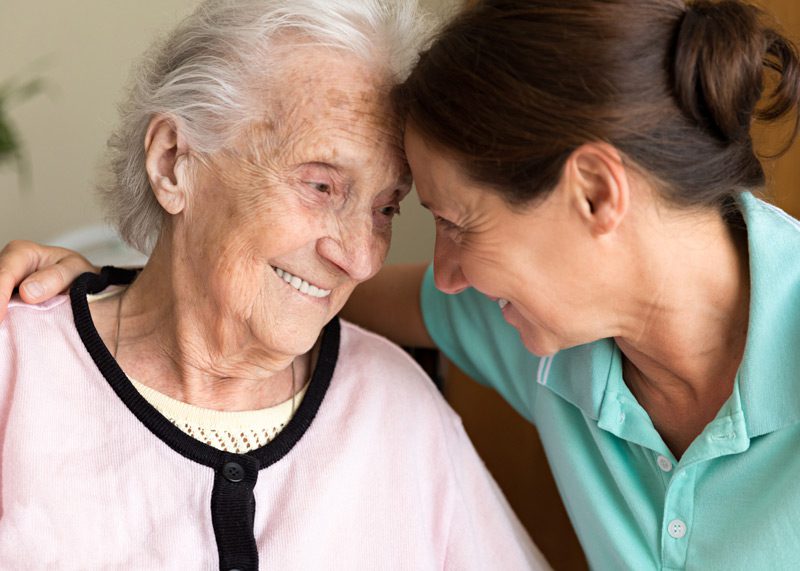

Alzheimer’s and Dementia are two challenging illnesses faced by many seniors across the country. Caregivers may struggle to meet all of the needs of their loved ones and often turn to professional providers for assistance. Depending on the severity of the patient’s illness, they may need in-home support and supervision, adult day care, assisted living, or full–time residence in a specialized memory care unit.
The Stages of Memory Loss
A brain with Alzheimer’s has an atrophied cerebral cortex. In other words, the outer surface of the brain is shrinking and having a negative effect on intellectual functioning. Two things happen in the brain:
- The amount of brain substance in the gyri, or folds of the brain, decreases.
- The spaces in the sulci, or folds of the brain, are heavily enlarged.
In mild dementia, patients may experience the following symptoms;
- Memory loss of recent events
- Difficulty completing tasks, solving problems, and making good judgments
- Personality changes
- Difficulty organizing and expressing thoughts
- Difficulty with memory (getting lost or misplacing belongings)
Patients with moderate Alzheimer’s experience:
- Increasingly poor judgment and deepening confusion
- Greater memory loss
- Difficulty bathing, grooming, using the bathroom, and other self-care activities
- Significant personality and behavior changes
Severe Alzheimer’s is characterized by the following symptoms:
- Inability to communicate clearly
- Inability to perform personal care
- Decline in physical abilities

In-Home Care and Day Care
Professional caregivers are trained to manage the difficult symptoms of dementia. Some patients diagnosed with Alzheimer’s may become angry, aggressive, violent, and abusive. In these instances, family caregivers may turn to a home healthcare worker to assist for a few hours a day, or to provide 24-hour care.
These caregivers assist with household chores and also handle personal care. They ensure patients are safe and don’t get lost. In-home services for patients diagnosed with Alzheimer’s may include:
- Companion Services. Supervision, recreational activities, routine visits, wandering prevention, managing moments of anxiety, confusion, or anger.
- Homemaker Services. Assistance with bathing, toileting, eating, dressing, exercising, medication reminders, and other daily activities.
- Personal Care Services. Laundry, light housekeeping, shopping, prescription pickups, meal planning, and cooking.
- Skilled Care. Wound care, physical therapy, injections, transportation to doctor’s appointments, and other medical services.
Questions to Ask When Considering In-Home Alzheimer’s & Dementia Care
- Are the nurses trained to provide first aid and CPR?
- How much experience do the nurses have working with patients living with dementia?
- Have the staff members received training in dementia care?
- Can the team members provide client testimonials or references?
- What days and times can the nurses provide care?
- Does the in-home care agency have on-call staff members to handle emergencies or urgent needs?
- Does the in-home care agency have the capability to meet the patient’s health and behavioral care needs?
Eventually, in-home care becomes insufficient for patients living with Alzheimer’s. As symptoms progress, patients need more intensive care and support in a facility that offers full-time monitoring and memory care.
Families of patients living with Alzheimer’s are encouraged to reach out to Active Plus Home Health Care, Inc. to learn more about our Alzheimer’s and Dementia Care services.

